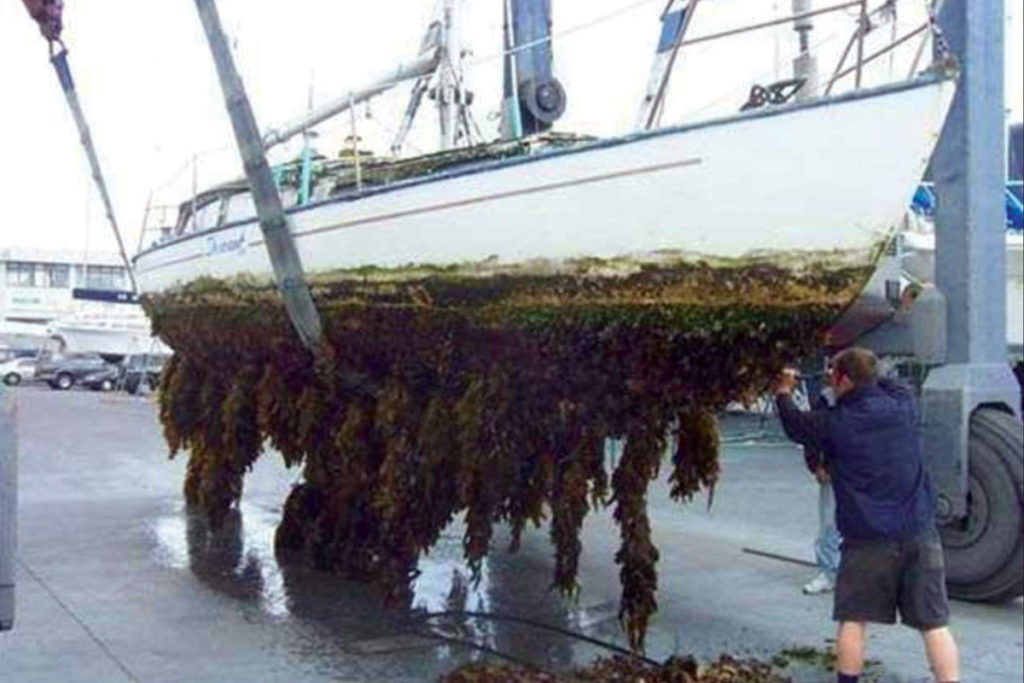My name is Chris Schmokel, and I am an environmental chemistry major at Oregon State University and also an Oregon Sea Grant Summer Scholar Fellow. My fellowship placement is with the Oregon DEQ, and this summer I’m working on two projects: starting up a pilot program to test for copper concentrations in Oregon waters, and creating a short video to share all the good work being done by the Oregon Sea Grant’s Oregon Applied Sustainability Experience internship program.
Some background on the copper testing project:

Organic growth on the underside of boats is known as fouling, and it can range from a mild inconvenience to a major problem, depending on how long a boat is in the water and the type of aquatic organisms present at a given location. Many techniques have been developed over the years to deal with this problem, but currently the most prevalent solution is the use of special antifouling paint for the undersides of boats. This paint contains a large percentage of copper, which acts as a biocide, slowly leaching into the water adjacent to a boat and discouraging organisms from attaching to it. Unfortunately, copper ions released in this way can spread beyond a boat’s immediate vicinity, and can cause unintended ecological harm. A great deal of research has shown that excessive copper concentrations are toxic to many types of aquatic organisms, including freshwater mussels and salmonids, among others. Both California and Washington have passed regulations to control the use of copper based boat paint, but Oregon has yet to do so. My project for the summer will focus on developing a pilot water testing program to help the DEQ get a better picture of the concentrations of copper at various sites around Oregon. This sort of testing may be the first step towards Oregon enacting copper regulations similar to its neighboring states.
My second project this summer is creating a short video to highlight the work of the Oregon Sea Grant’s Oregon Applied Sustainability Experience internship program. This program partners college students with local businesses to find ways to improves efficiency and prevent waste and pollution. Tomorrow morning at 4:30 AM (!!!) I’ll be hopping in my car and heading down to Port Orford to get some shots of the halibut boats coming in to offload their catch. I’ll also be sitting down with intern Connor Nolan to talk about the work he’s doing with Port Orford Sustainable Seafood to reduce processing waste and maybe even convert it into a marketable product in the form of fish paste for cooking.
I’m very excited about these projects, and I hope next time I post I’ll have some fun photos from Port Orford, as well as some new information on a copper testing pilot program.

